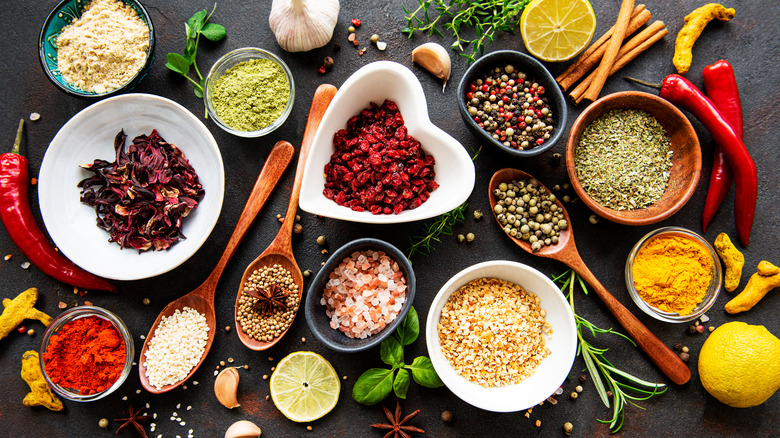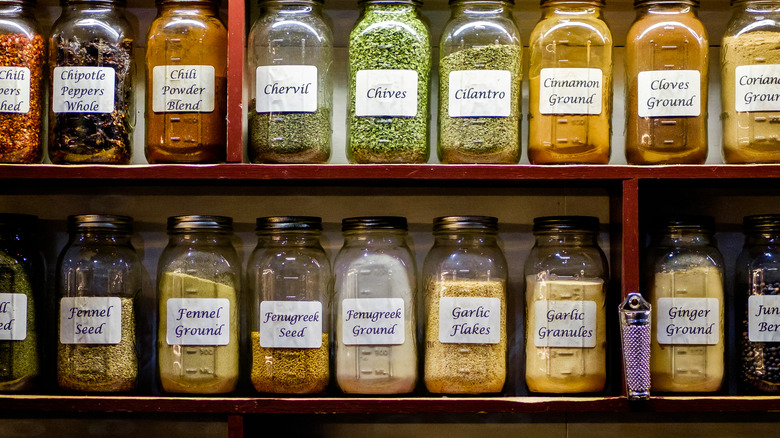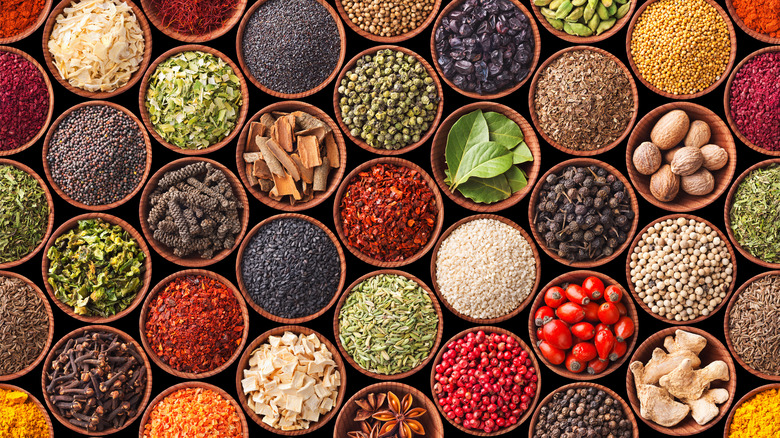Why The Professionals Skip Decanting Spices
There's nothing better than a clean, organized kitchen. Picture it: A spotless sink, gleaming countertops, and cabinets free of blemishes. Inside those cabinets are bins of sealed containers of pasta, grains, sugar, and snacks clearly labeled.
Having a well-organized pantry isn't just aesthetically pleasing, it can help prevent germs and pests. It may seem right to decant everything into containers, even your spices, and seasonings. With so many spices in different containers and jars, it's tempting to have a uniform collection of spices at your fingertip.
According to McCormick Science Institute, there are "roughly 40 different spice (and herb) plants of global importance." Chances are there are plenty of spices laying around in your drawer or cabinets. Having a well-stocked spice collection can help elevate your cooking as they're the essential building blocks of cooking. Decanting is all the rage these days. You may have seen decanting tips and tricks on social media, such as TikTok. Decanting your spices seems like the easiest solution, however, some experts say it may not be worth it.
Why you shouldn't decant your spices
Whether you should decant your spices largely depends on the spices you buy. But for the most part, experts say decanting spices isn't necessary (via Epicurious). In fact, it may be wasteful, especially if the spices are already bought in "airtight tight jars."
However, buying spices in bulk or in plastic bags is another situation. Decanting your spices can help preserve their aroma and freshness. Plastic bags can cause spices to lump due to moisture exposure, according to Lior Lev Sercarz, owner of NYC spice shop La Boîte (via Yahoo!finance). If you're buying spices in bulk, Sercarz recommends storing the spice in a large container that is kept in the pantry and then having a separate small jar for everyday use. When decanting, make sure to put it in a glass jar as "it doesn't interact with the spice," he said. "Plus, clear glass is transparent, which allows you to see how much spice you have left in the jar."
How to organize your spices
While you might be enticed to transfer your spices into a new container, there may be better ways to organize your spices. Sercarz suggests organizing spices based on usage frequency (via Yahoo!finance). Make sure to have easy access to common spices, such as salt and pepper. For example, if you store your spices in a drawer or cabinet, put them at the front of the drawer or cabinet.
It may be best to keep your spices in their original containers or bottles, but who says you can't flaunt your racks of spices? If you want your spices on an aesthetic display, experts suggest storing your spice jars in a clear container or box, such as an open-top storage bin (via Epicurious). Labels are a great way to add cohesiveness to your spice collection. Create labels using a label maker to place on the jars for easier identification. A simple budget-friendly alternative is a simple roll of tape and a marker.


